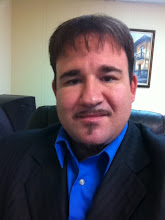MIAMI – Oct. 6, 2008 – Fed up with insurance prices in Florida, Pompano Beach resident Charles Fetten dropped windstorm coverage on his home two years ago and hasn’t looked back. That is, until this month when hurricanes Gustav, Hanna and Ike swirled dangerously near South Florida.
“This year, I’m looking at it thinking, ‘Whoops, maybe I should have [coverage],’” he said.
Certain South Florida homeowners frustrated with property insurance prices, which doubled or tripled in some cases after the 2004 and 2005 hurricanes, are striking back by “going bare.”
People who own their homes and don’t have a mortgage can drop their insurance. Insurers are required to provide the option of allowing consumers to drop the pricey windstorm portion of policies but keep coverage for fires, theft and other perils.
Despite the Legislature last year offering this option, insurance agents advise against dropping coverage, unless a homeowner has enough money to repair or rebuild their homes if needed.
Fetten, who has spent about $45,000 on property insurance since buying his home in 1965, was frustrated when he received $9,000 from his insurer, Safeco Insurance, for storm damage from Hurricane Wilma and was forced to take out a low-interest loan for another $10,000 for repairs. The Small Business Administration, which offered the loan, estimated the damages at $35,000.
The insurance money and loan covered most of the repairs because Fetten, a retired auto mechanic, did most of the repairs himself. He’s still paying off the loan.
He wondered: What’s the point of paying for insurance all these years if I’m going to have to shell out money for repairs anyway?
Nicole Watson wondered the same thing after hurricanes Frances and Jeanne battered the roof and kitchen of her home in Stuart in 2004 and her insurer gave her $7,000 – just enough to cover the repairs she and her husband made themselves.
She considered the idea again when her homeowner’s policy was up for renewal and increased from $900 before the storms to $6,000 last year with a $10,000 deductible. That means if her home had the kind of damage it did four years ago, she wouldn’t qualify for coverage again, she thought. She figured the home is built of Dade County pine so it’s doubtful “a hurricane can blow my house down.”
Watson dropped the policy last year. “I’m willing to take my chances putting my boards up and hoping for the best,” she said. “I’ll be my own insurance company.”
Watson said on the off-chance her home is destroyed, her family can sell the land to help pay for a new place to live.
That doesn’t stop her husband, Tom, from standing on the porch watching the weather when there’s news of a storm, as he does in his job fixing boats. Hurricane Ike was the one storm this year that shook Nicole Watson.
“It’s scary to say the least, to think we may not have a home to come” back to if South Florida is asked to evacuate, she said.
Besides losing some peace of mind, homeowners can lose the life savings they’ve invested in their homes without insurance, said Anita Byer, of Plantation-based Setnor Byer Insurance & Risk.
She tells her clients that “if they think they can envision a class five hurricane and their house can withstand that, they can drop the insurance. ‘If you can’t, you have no choice: you need it.’”
Homeowners who “go bare” could be a risk for taxpayers, too, said John Novak, a public adjuster with Plantation-based i.i.W.i.i. Adjustment Group. If their homes are hit by a major storm, Novak said, many are likely to be awarded disaster assistance funds from the federal government.
“These losses will be paid by someone or rather everyone,” he said.
Pat McNamara, insurance agent with Burke, Bogart & Brownell said homeowners who can afford it should consider boosting their deductibles enough to drop their premiums significantly. Fetten said that idea isn’t off the table. Now that he’s retired, he said it would be difficult scraping enough money together to make repairs himself like he did in 2005.
“I can’t see doing all this on social security,” he said. “But I still think I could handle it better than [the insurer] did.”
Cadence Fishing CS10 Spinning Reel Review
6 years ago










No comments:
Post a Comment